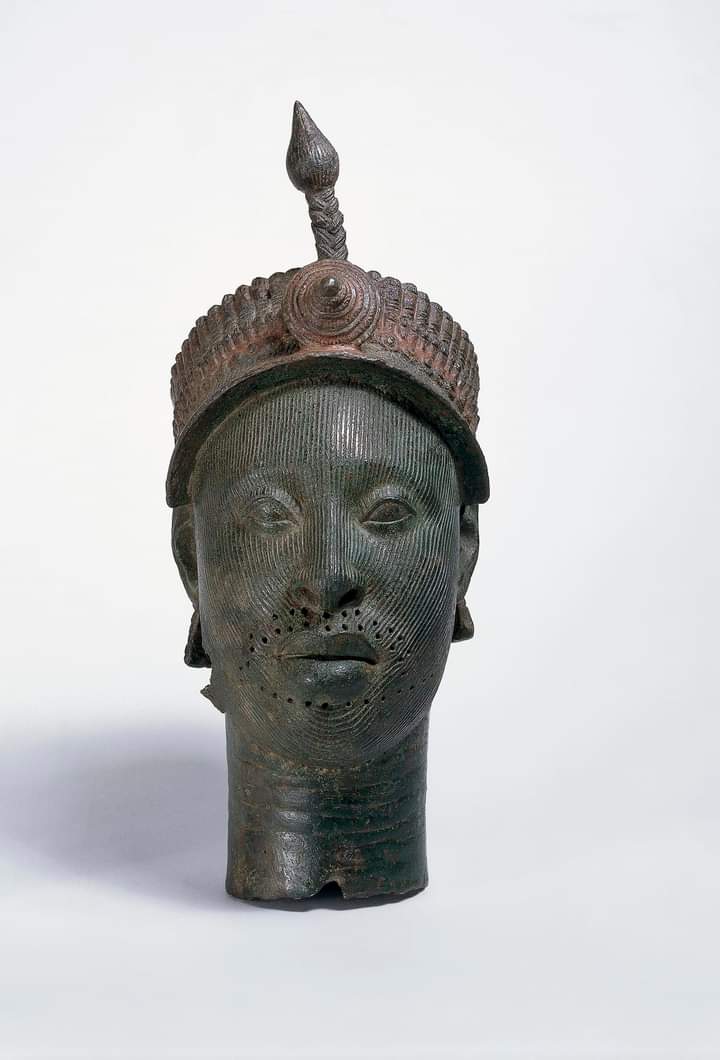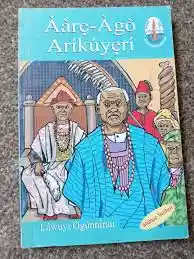Ààrẹ-Àgò Aríkúyẹrí By Láwuyì Ògúnníran
YORÙBÁ LITERATURE WEEK
We are celebrating classics of Yorùbá literature this week. Thus, we shall be reviewing some of these works per day:
Ààrẹ-Àgò Aríkúyẹrí
By Láwuyì Ògúnníran
First published in 1977 by Macmillan Nigeria as part of the Ọmọ Odùduwà series, Ààrẹ-Àgò Aríkúyẹrí (The War Chief Who Dodged Death) is a powerful Yorùbá-language play, spanning approximately 112 pages. It is a tale woven with the threads of power, pride, betrayal, and tragic downfall—a haunting story of a revered warrior whose true battlefield lay not in war, but within his own compound.
Ààrẹ-àgò Ọgúnrìndé Ajé was once a name that evoked reverence across Ìbàdàn—a fierce and decorated warrior, a stalwart of the community, and a high-ranking military chief whose victories defined an era. Yet, it was not enemy swords nor spears that undid him, but the silent machinations of those closest to him—his own wives.
In his household lived three women: Aṣiyanbí, the senior wife—wise, but vengeful; Fátọ́lá, the young and beloved favourite; and Adépèlé, the newest addition, radiant and fresh. During a festive celebration where Fátọ́lá’s charm took centre stage, jealousy took root in Aṣiyanbí’s heart. The day’s joy quickly curdled into spite.
Soon after, tragedy struck. Adépèlé’s newborn twins died mysteriously, and her remaining child, Ìdòwú, fell gravely ill. Aṣiyanbí seized the moment, whispering accusations into Ajé’s ears. Her venomous tales painted Fátọ́lá as the perpetrator. Consumed by suspicion and fury, Ààrẹ-àgò Ajé—without trial or inquiry—shot and killed Fátọ́lá in the courtyard, staining his hands not with the blood of enemies, but of his own innocent wife.
Yet Ìbàdàn was not lawless. Its traditions held firm. Baṣọ̀run Ògúnmọ́lá, the city’s political head and arbiter of justice, summoned Ajé to account—not only for murder, but for insubordination. Only the Baṣọ̀run held the authority to sanction death. Ajé had violated a sacred trust.
The trial that followed was intense. Witnesses faltered. Truths surfaced. Adépèlé denied ever consulting a herbalist. Aṣiyanbí, under scrutiny, confessed to fabricating the charges out of envy. With each revelation, Ajé’s stature crumbled—not by sword, but by shame.
Recognizing his past service, Baṣọ̀run offered Ajé a dignified exit: ritual suicide within the privacy of his home. No spectacle. No dishonour—at least in appearance. But the once-great war chief could not face death.
He disappeared.
Rather than meet his fate, Ajé vanished into the shadows, evading both justice and shame. In the mouths of the people, a new name was born: Aríkúyẹrí—the one who dodged death.
Ìbàdàn responded with resolve. Laws were reformed. No longer would rank shield wrongdoers. From that day forward, all murderers—be they chiefs or commoners—would face public execution. Those who sought to pervert justice during the trial were exposed and punished. The storm had passed, but its scars remained.
Ààrẹ-àgò Ajé, once bathed in honour, was now cloaked in disgrace. His battlefield glory could not redeem the moral failure at home. He did not enter the annals as a hero or martyr, but as a warning—a grim reminder of the dangers of unchecked power, domestic strife, and pride that blinds a man to justice.
Rich with Yorùbá proverbs, poetic cadence, and deep cultural insight, Ààrẹ-Àgò Aríkúyẹrí reminds us that the fiercest battles are often not fought with weapons on distant fields, but within the walls of one’s home—and sometimes, within the soul.




